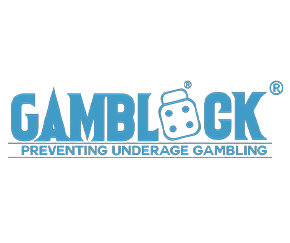
NewCasinos' Responsible Gambling Pledge
NewCasinos is strictly against any dishonest acts carried out by gambling sites or players. We are committed to promoting gambling sites which provide a safe environment for players. We also ensure that reviews, news, information, ratings, and tips are transparent and trustworthy so players can use gambling portals in a secure way.
Responsible Gambling: What Does it Mean?
In simple terms, responsible gambling is a combination of strategies and practices that guarantees a gambling business runs operations in a way that is ethical, safe, and enjoyable for players. It centres around the concept that online casinos should keep gamblers engaged without letting things spiral out of control. The main goal for the player should not be to earn money but to stay entertained while gambling.
Responsible gambling policies exist to prevent the behaviours mentioned above, and should they arise, quickly recognise and resolve them. Such an approach seeks to mitigate possible risks for gamblers and operators. It underlines a strong dedication to player well-being and proficient management practices within the gambling industry.
Nowadays, the concept of responsible gaming is taking centre stage in the online gambling sector. Safety and player well-being have become important considerations, altering the entire landscape of the ever-evolving industry. Although the fundamentals of Responsible Gambling are not exactly new, they are now a top concern for all stakeholders associated with iGaming, including operators, regulators, and players.
Such an approach may seem intimidating to gambling operators since it entails restricting players for their well-being. However, Responsible Gambling is not just a prerequisite but an effective tool for companies to cultivate a substantial and engaged audience over the long term, uphold favourable relationships with regulatory bodies, and promote a solid reputation in the market.

What is Problem Gambling?
Problem gambling gambling is the opposite of responsible gambling, where individuals start developing damaging behaviours while betting. Also known as gambling addiction or compulsive gambling, problem gambling stops individuals from being able to control their gambling urges despite the repercussions. This behaviour damages relationships with family and loved ones and interferes with work, causing problems in different areas of life.
Problem gambling is a recognised condition and is treatable with different forms of therapy, such as counselling, group meetings, and, in some cases, even medication.
Misconceptions about Problem Gambling
First things first, we will debunk some myths about problem gambling. Have a look at the main misconceptions surrounding gambling problems and see if you have been guilty of believing them.
Gambling Regularly Indicates a Problem – This is not true; many people can play daily without issue. The problem begins when you spend all day everyday gambling, and it gets in the way of other more important aspects of your life. Playing a couple of hands of blackjack as a means to unwind after you’ve been at work and are on your way home to see friends or family is not an issue.
It is only when you cut out work or social time and spend all your time playing blackjack that it becomes a problem. On the contrary, if you play once a month but when you do play, you spend more than you can afford, then this is a bigger problem than the person who plays within his limits every day.
Losing Too Much Money is the Issue– While money is a big part, problem gambling can cause much more damage than this. A key issue is relationships. Of course, when someone steals from friends or family, this is linked to money, but even lying about the habit of ditching friends to gamble can also be an issue.
Once the relationships go then it is a slippery slope. It can also have a detrimental effect on your mental health and how you value yourself.
Problem Gamblers Are Escaping Problems in Their Lives – This is not always the case and is a very sweeping accusation. Many people had a perfectly normal life before gambling, then one thing led to another, they didn’t know the implications of what they were doing and then suddenly, they have a problem. You shouldn’t think you are exempt from gambling problems as this can often lead to reckless behaviour. However, yes, those with existing problems will be more prone to these behaviours, but it can happen to anyone.

Signs of Problem Gambling
Now that we know what isn’t right, it is time to examine what issues are at the core of responsible gambling. Below, you will find a list of the tell-tale signs of problem gambling:
- You are spending all your time gambling, so much so that it influences other parts of your life, such as work or family
- You are spending more money than you can afford to lose on online casinos.
- You are in debt, seeking loans to cover losses, constantly borrowing money from friends and family or selling your possessions to fund gambling.
- You are chasing previous thrills by betting more money at betting venues.
- You are chasing losses by betting more money.
- Your moods are negatively affected by gambling.
- You drink or take drugs when you gamble.
- You drink or take drugs as a result of gambling.
- You are gambling to escape problems, responsibilities or hardships in your life.
- You are lying about gambling or hiding it from loved ones.
- You have tried to reduce or stop your gambling activities but couldn’t.
- Compulsive thoughts about gambling
- Increasing financial obligations
- You feel annoyed when limiting staking
- Dishonest practices regarding gambling habits
- It impacts your relationships, job, or everyday living
Sound familiar? Well, then you need to have a look at yourself and consider that you have a problem. This is the first step. In the next few sections, you will learn more about what it takes to overcome problem gambling.

Gambling Harm Reduction: Dos and Don’ts
Here are some essential dos and don’ts that can assist you in playing responsibly at online casinos and other betting venues to keep your gambling in check.
DOs
- Do educate yourself as best you can about responsible gambling- this page is the ideal jump-off point
- Do set a budget and don’t exceed it
- Do set time limits and don’t exceed them
- Do take breaks; if you find yourself playing nonstop for hours this will help clear your thoughts
- Do reward yourself with money you save from gambling
- Do install Gamblock, a service that prevents you from logging on to betting sites
- Do remove any social media pages you subscribe to that involve gambling
DON’Ts
- Don’t consider gambling as a source of income
- Don’t gamble intoxicated or when you are already in a bad mood; this could lead to poor decision-making
- Don’t chase losses
- Don’t consider wins as guaranteed
- Don’t borrow money to fund your gambling
- Don’t let gambling interfere with your work of social life
- Don’t allow gambling to affect your personal and/or social life
- Don’t look for trends
- Don’t believe in superstitions
Important Responsible Gambling Tools
While these do’s and don’ts are a good jump-off point, we understand it is not always easy. Luckily, casinos offer a variety of different options that can help ease the temptation of being drawn back into online gambling.
Below are the measures licensed operators are required to adopt to ensure a more Responsible Gambling environment for all parties involved:
- Gambling History: Looking at your gambling history can be the wake-up call you need. It will show your deposits next to your withdrawals, and you will see the comparison. This can really put your gambling into perspective.
- Set Reality Checks: This tool does not prevent you from gambling. It lets you know how much time you have spent doing so. If time seems to get away from you when playing at online betting venues, then setting a reality check can help you realise how long you are spending playing. They will pop up periodically to ensure you know how long you have played so 10 minutes doesn’t turn into 8 hours.
- Set Deposit Limits: Setting a deposit limit is a good way to keep your spending in check. You can set a limit for a day, week or month. Once you have reached that limit, you won’t be able to deposit anymore, allowing you to budget more effectively.
- Set Loss Limits: This option allows you to pre-set a maximum loss limit, after which you cannot continue to wager. You can cap the amount you can afford to lose within a specified period of time. Setting a limit on your losses is a great measure to stop and control extra spending once you have reached the established limit.
- Set Wager Limits: Setting and sticking to wagering limits is an effective way to prevent developing gambling issues, as it encourages gambling in a controlled way and keeps gambling as a form of entertainment. You can establish a limit on how much you bet, either during a specific time frame or per individual wager.
- Session Time Limits: Utilise this tool to control the amount of time you spend gambling and promote a more sustainable approach to gambling. You can place a limit per session. If this limit is exceeded, you will be logged out automatically.
- Set Cooling-off Periods: When you need a temporary break from gambling, you can lock yourself out of your accounts for a few hours or days. A cooling-off period will allow you to step back from gambling for a couple of hours to a month. Giving you plenty of time to evaluate your behaviour and stop spending more money. During these periods, you should speak to friends and family or do some form of social activity. You will not be contacted by other casinos during this time, allowing you to rid yourself of temptation completely.
- Self-Excluding: If things are really getting out of hand, you can self-exclude yourself from a casino or multiple operators, meaning you voluntarily bar yourself from entering casinos or using an online casino for a set period of time, commonly ranging from 6 months to years or permanently. This should give you plenty of time to evaluate. When you self-exclude, casinos are legally required to prevent you from gambling for that specified period.
- Betting limits: Limiting the amount you can bet on a single game or over a specified time.
- Session display: Shows the duration of your current session, along with wins and losses.
- Access to gambling history: Provides your complete betting and transaction history.
- Self-assessment tests: Quizzes or questionnaires that help you evaluate your gambling behaviours.
- Links to help organisations: Providing information and quick access to professional help organisations, like Gamblers Anonymous or GambleAware.
- Parental controls: Tools that prevent minors from accessing gambling content.
If you are interested in any of these services, your online casino’s customer support service should be on hand to help with this.

Understanding Your Betting Behaviour: How to Check Your Playing History
To effectively monitor and control your gambling behaviour, a good rule of thumb is checking your playing history. If you want to take a proactive approach towards gambling responsibly, follow these 6 steps to stay updated with your habits so gambling remains an enjoyable, safe activity:
1. Sign In to Your Account
First, start by logging into your betting account either online or through an app if applicable.
2. Go to Your Account Settings
You should have an option to go to your account, such as ”User Profile”, ”Account”, or ”My Account”, where you can usually find your account and personal information.
3. View Your Betting History
There should be a dedicated section to view your betting history from within your account settings, labelled as ”Gaming History”, ”Transaction History”, ”Betting History” or something along those lines.
4. Examine Your Transactions
Now you can view a detailed history of your betting, examine the amounts wagered, dates when you played, the bet types, and the results of your bets. You might even have information on the types of games or events you placed your bets on.
5. Review the Patterns
Analyse how often you gamble, how much money you spend, and what games or events you place bets on. Observe any particular patterns or trends, like inclinations of wagering more when you lose or increasing how much you gamble during certain periods.
💡 Some platforms have filters to view your history based on periods of time and tools to visualise your data further. These can be useful to gain a deeper understanding of patterns and to manage your data.
6. Evaluate and Modify
Depending on your findings, make evaluations if you need to make changes to your gambling habits. If you notice any worrying trends, consider adding the limits discussed and contacting the casino’s customer service for more support.
Step-by-Step Guide to Self-Exclude
Self-exclusion is a responsible action to take for individuals who feel that their gambling behaviour has become a problem. While self-exclusion varies depending on your country of residence, these are the steps you will generally have to follow:
1. Decide on the Range of Self-Exclusion
Start by assessing whether you need to self-exclude from land-based casinos, online sites, or both. If you want to go the extra mile, consider excluding from a wider network of casinos instead of specific casinos.
2. Reach Out to the Gambling Operator
For land-based casinos or betting shops, you can ask the customer service desk for more information on self-excluding. If self-excluding from online gambling sites, their responsible gambling section should have the option to self-exclude. You can also speak to their customer service for more assistance.
3. Join a Self-Exclusion Program
Depending on your country of residence, you can register with a national self-exclusion program to be excluded from gambling-related activities within your country. For instance, you can register with GAMSTOP if you’re based in the UK. You must complete the required forms, which usually require your personal details and period of exclusion.
4. Provide a Form of Identification
For the casino operator or program to fully enforce the self-exclusion request, they might need a copy of your identification and photograph.
5. Verify the Self-Exclusion
You must verify the details provided to complete the self-exclusion registration and ensure you have received a confirmation that it has been processed.
6. Get Additional Support
You’ve done great so far, but consider reaching out to gambling addiction resources such as support groups or counselling services to help tackle any underlying issues.
7. Stay Up to Date
Keep a record of any documentation or confirmation emails relevant to your self-exclusion application. Have a look at the terms, specifically the start and end dates.

Gamban
Gamban is perhaps the most famous app in this category – especially in the UK. Its advanced technology means that it blocks all gambling apps and websites worldwide, and crucially it works across all your devices. Gamban’s motto “If will power slips, Gamban doesn’t” summarises this nicely. If you are registering at Gamban for the first time then you are entitled to a seven-day free trial to see if it works for you; after that, it is available on a monthly or annual basis – the latter is currently priced at £24.99.

GamBlock
GamBlock is a tool that can be downloaded to stop access to casino and betting apps on any device. It has been designed so that it cannot be removed, even after a factory reset, and can be installed after purchasing a subscription. Impressively, GamBlock also blocks brand new gambling sites as they launch and is also not fooled by VPNs.

BetBlocker
One of the major free blocking tools is BetBlocker. This can be used across devices for a set period of time – from 24 hours to five years. A parental control option is also a handy inclusion, and it takes just two minutes to set up.
How to Block Gambling Transactions
You can block payments from your bank account or debit card as a proactive approach, which is an important step to preventing problem gambling and an effective tool for managing your gambling habits. Below, find a step-by-step guide on how you can usually do this:
1. Sign Into Your Internet Banking Account
You’ll have to first log in to your internet banking account, either through the bank’s website or app.
2. Go to Card Settings
Navigate to the settings section for your debit card; it is usually labelled ‘Card Settings’, ‘Security Settings’, or an equivalent.
3. Search for the Gambling Block Feature
Locate the options that let you block transactions, which can be found as ”Payment Controls’, ‘Merchant Controls’ or could even be labelled as ‘Gambling Transactions Block’. Some banks like Revolut have a specific control to block transactions related to gambling.
4. Enable the Blocking Feature
Active the blocking feature by toggling the option or following the instructions on the screen to enable the feature. When you activate it, you should no longer be able to do any related gambling transactions in the future.
5. Confirm the Changes
For some banking systems, you might need to confirm your decision or authenticate it since you’re applying new setting controls related to using your card. Ensure that you verify these changes when required.
6. Look Out for a Confirmation
An email confirmation or app notification confirming these changes and that the block is active should be sent. Keep an eye out for it.
7. Check Your Settings are Still in Place
Check back in to confirm that your updated settings are still enabled, particularly when you update apps or change your debit card.
💡You can also contact your bank’s customer support for assistance if you cannot activate this feature or if it is unavailable.
How Can I Opt Out of Seeing Gambling Adverts Online?
There are two common mediums where you can opt out of seeing gambling adverts online:
- YouTube
If you want to stop seeing gambling adverts online, you can follow these easy guidelines:
1. Opting Out on YouTube
You only need to follow the steps laid out below to opt out of adverts on YouTube:
- Ensure you are logged in to your account.
- In the top right corner of the home screen (on the website), click on your profile icon, and a drop-down menu will appear. Then, select ‘Settings’. On the app, you’ll need to select your profile icon on the bottom right-hand of the screen, then on the next screen, select the gear icon at the top on the right-hand side.
- A new window will open with your account settings.
- Select ‘Privacy’ from the list under ”Settings” on the left-hand side, leading you to the account privacy settings.
- If you’re on the app, select ”Ad Settings’ which will lead you to ‘My Ad Center’ in your browser. On the website, click on the ‘My Ad Center’ hyperlink in the middle of the page, and a new window will open.
- In this area, you can turn off personalised ads: next to ”Personalised Ads”, select the blue bottom marked ”On”, and select ‘Turn Off” at the bottom right-hand of the screen. This part of the process is the same.
- If you do not want to turn off personalised ads, when you’re still in the ‘My Ad Center’, select ”Customize Ads”, and under the ‘Topics’ tab, you will see a list of categories – check if there are any related to gambling or betting, and you can remove these by selecting the ”-” sign.
2. Opting Out on Facebook
You can also opt out of seeing gambling adverts on Facebook. Here’s how to adjust your settings:
- Start by signing into your Facebook account
- You’ll need to select the downward arrow on your profile icon, which is located in the top right corner, to select ”Settings & Privacy” and then ”Settings”. On the app, select your profile icon on the bottom right of the screen, then on the next screen, scroll down to the bottom, press the drop-down arrow next to ”Settings & Privacy” and click on ”Settings”.
- Use the search bar on the left-hand side, type ”Ad”, and select the option ”Ad preferences” which should appear as the top search result. On the app, the search option is located in the top right corner.
- Select ”Ad Topics” (on the app, you’ll have to scroll to the bottom) and press on the blue button labelled ”View and manage topics” option. Here, select the topic ”Real money gaming”. You can also use the search bar instead of pressing the ”View and manage topics”.
- A window will pop up, and you’ll need to tick the option ”See less”. You should now be able to see the topic when clicking on the white ”Review topic choices” button under ”Your ad topic choices”.
- If an advert slips through these settings, you can also click on the upper right corner of the ad, select ”Why am I seeing this ad?”, and from there, select the option ”Hide all ads from this advertiser”.
By adjusting your ad settings on YouTube and Facebook, you can reduce the chances of exposure significantly, which will help support a healthier online environment free of unprompted gambling content.
Gambling Addiction Support Organisations Directory by Country
If you are still struggling, then you may need professional help. Various organisations are specialists in helping problem gamblers, whether you are one or you have a friend who is.
Below is a list of some of the most prominent specialised organisations by country, established to encourage Responsible Gambling practices and support problem gamblers, which online gambling sites can highlight on their platforms:
United Kingdom
National Gambling Treatment Service
Operated by GamCare, the National Gambling Helpline provides confidential guidance, information, and assistance related to problem gambling. This service is free, and advisers are available 24/7 over the phone or live chat.
- 📞 Phone: 24-hour support on freephone 0808 8020 133
- 💬 Live chat: At the top of https://www.gambleaware.org/‘s website
National Problem Gambling Clinic
As part of the National Gambling Treatment Service, the National Problem Gambling Clinic is commissioned with GambleAware and NHS England.
- 📞 Phone: 0207 381 7722
- 📧 Email: gambling.cnwl@nhs.net
- 🌐 Website: National Gambling Clinic
Northern Gambling Service
Also known as the NHS Northern Gambling Service, their speciality lies in providing addiction therapy and helping people who have been affected by gambling addiction to recover.
- 📞 Phone: 0300 3001490
- 📧 Email: referral.ngs@nhs.net
- 🌐 Website: Northern Gambling Service
- ✍️ Contact form: NHS Northern Gambling Service Contact Form
NHS – Help for Problem Gambling
A comprehensive guide prepared by the NHS about problem gambling.
- 🌐 Website: Help for problems with gambling
Take Time to Think
A national campaign aimed at encouraging regular use of safer and responsible gambling tools.
- 🌐 Website: www.taketimetothink.co.uk/
- 📧 Email: info@taketimetothink.co.uk
Samaritans
For individuals who are experiencing despair, distress, or other feelings which could lead to suicide, Samaritans is a 24/7 service offering confidential emotional support.
- 📞 Phone: 116 123
- 🌐 Website: https://www.samaritans.org/
- 📧 Email: jo@samaritans.org
- ✉️ Address: Freepost SAMARITANS LETTERS
MoneyHelper
Originally established by the UK government, MoneyHelper is an independent organisation that helps people to manage their money.
- 🌐 Website: https://www.moneyhelper.org.uk/en/contact-us
- 💬 Live chat: A tab on the right-hand side of the Contact Us page
Counselling Directory
The counselling directory offers a support system for counselling to help distressed individuals locate a suitable counsellor nearby, specifically for their needs.
- 📞 Phone: 0333 325 2500
- 🌐 Website: https://www.counselling-directory.org.uk/
- ✍️ Contact form: Contact Counselling Directory
- ⏰ Operating hours: Monday to Friday; 10am – 4pm
StepChange Debt Charity
An organisation providing free, confidential debt advice and impartial assistance to those in need, accessible 24/7.
- 📞 Phone: 0800 138 1111
- 🌐 Website: https://www.stepchange.org/
Debt Advice Foundation
This UK charity’s services are free of charge and offer confidential advice and assistance for those concerned about debt.
- 📞 Free Phone: 0800 043 40 50 (if calling from a mobile phone, let the adviser know, and they will call you back so you don’t get charged)
- 💬 Live chat/ Contact form: Start a Live Chat
- ⏰ Operating hours: Monday to Friday, 8am – 6pm
Debt Support Trust
A non-profit debt charity, Debt Support Trust has a dedicated team of trained and friendly debt advisors ready to guide you in resolving debt.
- 📞 Phone: 0800 058 0226
- 🌐 Website: https://www.debtsupporttrust.org.uk/
National Debt Line
This organisation offers autonomous and confidential advice on managing debt issues. Their services are free.
- 📞 Phone: 08088 084000
- 🌐 Website: https://www.nationaldebtline.org/
- ⏰ Operating hours: Monday to Friday; 9am – 8pm, Saturday; 9.30am – 1pm
- 💬 Live chat: National Debtline Webchat
Ireland
Gamblers Anonymous IE
- 🌐 website: https://www.gamblersanonymous.ie/
- Dublin: 📞 087 262 2804 (10am-10pm)
- Cork: 📞 087 285 9552
- Galway: 📞 086 349 4450; 📧 Email: galwayga@gmail.com
- Tipperary: 📞 085 783 1045
- Kerry: 📞 087 426 6633
- Waterford: 📞 087 185 0294
- Belfast: 📞 048 9024 9185; 📧 Email: gabelfast@gmail.com
- ✉️ Address: Teach Mhuire, 39 Gardiner Street Lower, Dublin 1, D01 KC83
GamblingCare
- 🌐 Website: https://gamblingcare.ie/
- 📧 Email: info@gamblingawarenesstrust.ie
- 📞Phone: 00 353 1 2469595
- ✉️ Address: GamblingCare, c/o Gambling Awareness Trust, The Black Church, St. Mary’s Place, Dublin 7, DO7 P4AX
GameCare
- 📧 Email: northernirelandteam@gamcare.org.uk
- 🌐 Official website: https://www.gamcare.org.uk/
- 💬 Live chat: bottom right on website
- 📞 Phone: 24-hour support on freephone 0808 8020 133
Extern Problem Gambling
- 📞 Phone: 089 241 5401
- 🌐Official website: https://www.problemgambling.ie/
- 📧 Email: info@problemgambling.ie
- ✉️ Address: Extern Problem Gambling, Viewmount House, Dunmore Road, Waterford City
GambleAware
- 📞 Phone: 24/7 support 0808 8020 133
- 💬 Live chat: GambleAware live chat
- 🌐 Official website: https://www.gambleaware.org/
Gordon Moody
- 🌐 Official website: https://gordonmoody.org.uk/
- 📧 Email: help@gordonmoody.org.uk
- 📞Phone: 01384 241292
GamStop
- 💬 Live chat: Through Contact Us page
- 🌐 Website: https://www.gamstop.co.uk/
- ✉️ Address: The National Online Self Exclusion Scheme Limited: 3 Greengate, Cardale Park, Harrogate, HG3 1GY.
Gamblers Anonymous/GamANON UK
Players in Ireland also have access to GamANON’s services.
- 🌐 Website: https://gamanon.org.uk/
- 🌐 Website: https://www.gam-anon.org/
New Zealand
Problem Gambling Foundation of New Zealand
An organisation which offers free and confidential support for those impacted by gambling.
- 📞Phone: 0800 664 262
- 📲 SMS: 5819
- 📧 Email: help@pgf.nz
- 🌐 Website: https://www.pgf.nz/
- ⏰ Operating hours: Monday to Friday; 8.30am – 5.oopm
Gambling Helpline
The Gambling Helpline provides a 24-hour phone service for free, offering instant support for gambling addiction.
- 🌐 Website: https://gamblinghelpline.co.nz/
- 📧 Email: info@gamblinghelpline.co.nz
- 📞Phone: 0800 654 655
- 📲 SMS: 8006
Gambling Debt Helpline
For those who need help with gambling debt, reach out to the Gambling Debt Helpline. They provide assistance with your debt.
- 📞 Phone: 0800 654 655
Maori Gambling Helpline
The Maori Gambling Helpline have a team of experienced Maori counsellors to help you beat gambling problems. Their services are free.
- 📲 Text: 8006
- 📞 Phone: 0800 367 222
Youth Gambling Helpline
For players who are under the age of 25, they can get help from the 24/7 Youth Gambling Helpline. Their service is free of charge and completely confidential.
- 💬 Live Chat Help
- 📞 Phone: 1800 262 376
Pasifika Gambling Helpline
Dedicated to players impacted by gambling addiction in the Pacific Island community, the Pasifika Gambling Helpline is on call 24/7.
- 📞 Phone: 0800 654 657
Asian Hotline (Problem Gambling Foundation)
A helpline for the Asian community residing in the Kiwi Isles.
- 📞 Phone: 0800 862 342
South Africa
South African Responsible Gambling Foundation (SARGF)
- 📞Phone: +27 11 026 7323
- ✉️Address: Sunnyside Office Park, Sentinel House, 2nd floor 32 Princess of Wales, Parktown, Johannesburg
- 🌐Website: https://responsiblegambling.org.za/
National Gambling Board
- 📞Phone: 010 003-3475
- ✉️Address: 1085 Francis Baard Street, Pretoria, Hatfield
- 🌐Website: https://www.ngb.org.za/
Gamblers Anonymous South Africa
- 📞Phone: Gauteng: 060 624 7140 / 081 874 1249, KZN: 083 783 5715, W.Cape: 079 368 4477
- 🌐Website: http://www.gamblersanonymous.org.za/
Tips for Players to Keep Gambling a Fun Activity
Responsible gambling should be a priority not only for operators but also for players. Below are some general tips players should follow, even if they are not experiencing problem gambling. After all, reinforcing strong habits can help prevent serious issues in the future.
Play at Regulated and Trustworthy Casinos
Stick to reputable online casinos licensed and regulated by recognised authorities. These casinos adhere to strict rules and regulations, ensuring fair play and the protection of players’ interests.
Provide Accurate Details
Always provide accurate and truthful information when signing up at an online casino. This includes your name, age, and contact details. Verifying your identity ensures the casino can provide a secure environment and comply with legal requirements. Failure to do so can result in long delays if you must cash out your winnings.
Avoid Betting Money You Cannot Afford to Lose
Only gamble with funds that do not have any other assigned purpose (a set amount that you can afford to lose). That means you should strictly avoid gambling with money you have to use to pay for utilities, buy groceries, cover healthcare expenses, pay rent, etc. You must always allocate a certain amount of money for gambling and use it wisely. Don’t make any more deposits if you lose this amount.
Put the Limits Offered to Good Use
As noted earlier, licensed gambling sites offer various limits to help customers control their gambling activities. It is best to set these from the beginning based on an honest assessment of your situation. For example, if you set a deposit or wagering limit, you must take a break once you run out of money so you don’t spend excessively.
Never Expect Guaranteed Wins
Keep in mind that gambling involves a significant amount of luck. So, while you can put different strategies to the test to maximise your experience, do not expect guaranteed wins. If you do win, never base your future expenses on these winnings.
Take a Break When the Fun Stops
It is advisable to take a breather once you feel you are no longer having fun gambling. If you have not reached your set limits, stop if you start feeling frustrated. You can always resume later with a refreshed mind.
Pick Up Other Hobbies
Gambling should not be your only means of entertainment. If you win money, great, but if you lose it, call it a day. Having other hobbies you can turn to is crucial once you feel you need to take a break from gambling.
Seek Help
If you feel that your gambling is getting out of control and is affecting other aspects of your life, there is nothing wrong with asking for professional help. There are many organisations and helplines that are ready to assist you in any way possible.
Final Thoughts on Responsible Gambling
References
- Help for Problems With Gambling – NHS
- Gambling – ASA
Responsible Gambling FAQs
Below, you can explore answers to the most frequently asked questions about responsible gambling.
What is considered responsible gambling?
Responsible gambling is any precaution taken to ensure that you partake in gambling as a form of entertainment and that you can manage your betting habits while preventing potential harm to yourself or others around you.
What is an example of responsible gambling?
One example of responsible gambling is setting limits for yourself. This could be either for money or time spent gambling, which could be done through tools found at many online casinos, such as loss limits, self-exclusion options, or deposit limits.
Is it really possible to gamble responsibly?
Yes, it is achievable when you set clear limits on money and time spent, understand your chances of winning, and, above all, view gambling as purely entertainment. By sticking to the basic principles of responsible gambling, the risk of gambling-related issues can be minimised. We urge individuals to monitor their behaviour to recognise any signs of problem gambling early and, when necessary, seek help from professionals.
What is the goal of responsible gambling?
The main goal of responsible gambling is to have a safe and controlled environment for gambling activities that helps to prevent addiction and minimise social and financial harm. Therefore, responsible gambling promotes a balanced and realistic approach to gambling as a form of entertainment while reducing the negative impacts on an individual or community.
How can casinos promote responsible gambling?
Casinos can help promote responsible gambling through 7 strategies:
- Provide tools for self-exclusion,
- Implement betting limits,
- Educate their teams on how to recognise problem gambling,
- Encourage time-out periods,
- Ensure odds and game rules are displayed clearly,
- Provide resources and support networks for help,
- Identify risky behaviour and communicate with players.